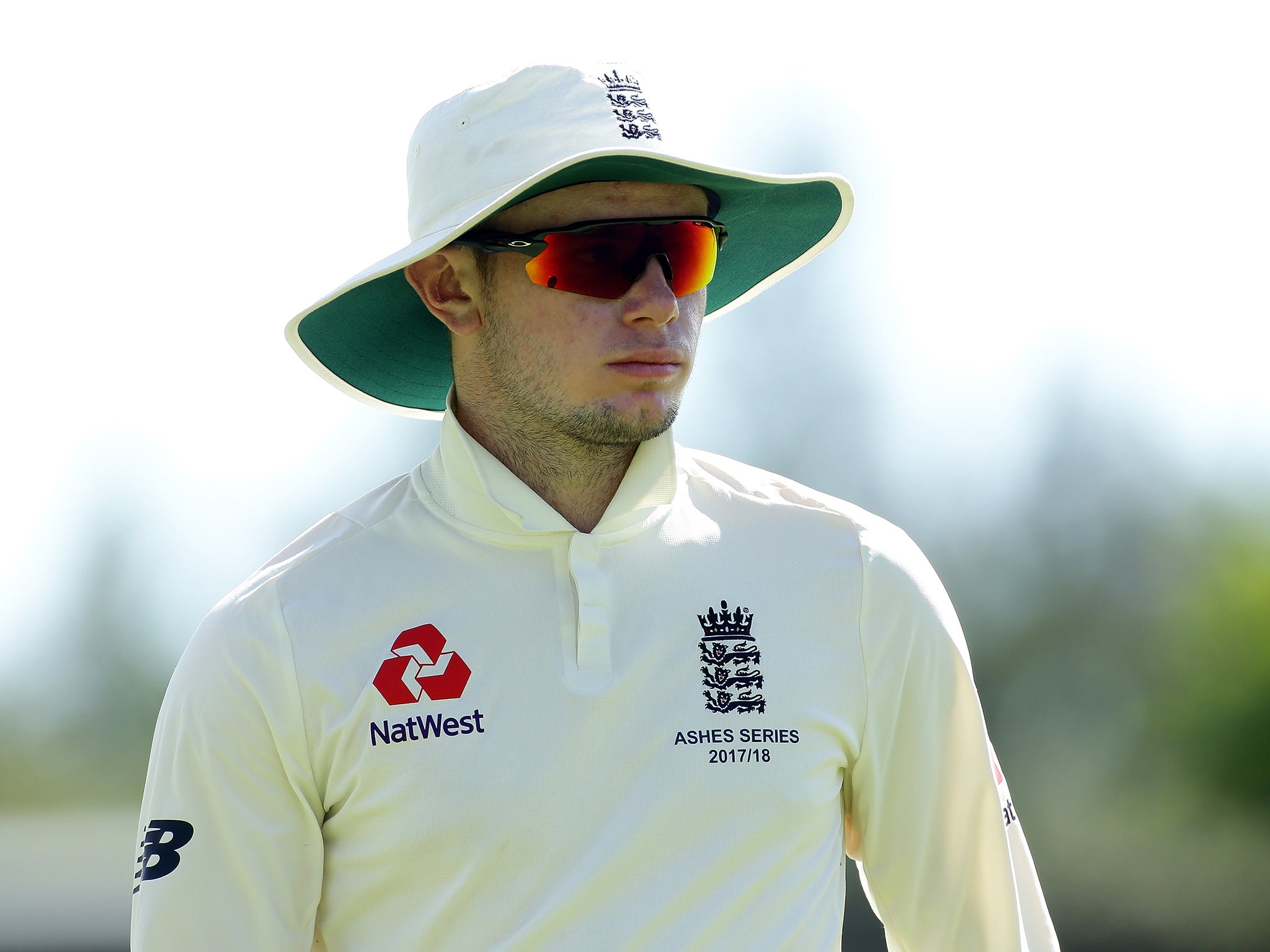This fifth Test is no dead rubber. As history shows, England can now mark their territory for the future
What happens at Sydney this week will resound for months and years to come. England have a premium opportunity to start the new year as they mean to go on

Your support helps us to tell the story
From reproductive rights to climate change to Big Tech, The Independent is on the ground when the story is developing. Whether it's investigating the financials of Elon Musk's pro-Trump PAC or producing our latest documentary, 'The A Word', which shines a light on the American women fighting for reproductive rights, we know how important it is to parse out the facts from the messaging.
At such a critical moment in US history, we need reporters on the ground. Your donation allows us to keep sending journalists to speak to both sides of the story.
The Independent is trusted by Americans across the entire political spectrum. And unlike many other quality news outlets, we choose not to lock Americans out of our reporting and analysis with paywalls. We believe quality journalism should be available to everyone, paid for by those who can afford it.
Your support makes all the difference.Final Tests of Ashes series can often offer an imperfect portal to the future. In 2002-03, England’s consolation victory in Sydney was notable for Michael Vaughan slapping Australia around the SCG, not only announcing himself as an imminent replacement for the increasingly fraying Nasser Hussain, but laying the aggressive blueprint for their 2005 triumph. Vaughan wrote in his autobiography that it was the first time he realised what it would take to beat the Australians. “The next Ashes,” he decided, “would be won on character.”
Australia did the same in England in 2015, puncturing the hosts' euphoric post-Trent Bridge bubble, reminding them that when the ball fails to deviate, they are an ordinary side at best. “It certainly gave us confidence,” said Steve Smith at the SCG on Tuesday. “Just knowing that we could win in foreign conditions. England will be doing their best to get the result this week. We need to everything we can to stop that happening.”
And so, welcome to the start of the 2019 Ashes. Seriously. Since the Second World War, when England win the final Test of an Ashes series, they go on to win the next series eight times out of 12. When Australia do it, they win the next series 10 times out of 12. The fate of the urn may be secure this time, but with the next series less than 18 months away, already there is a feeling of territory being marked for the next, moral victories being sought.
Besides which, all this talk about dead rubbers and meaningless achievements has always seemed faintly ridiculous: the sort of sporting insight you get from someone who is sitting at a keyboard 10,000 miles away when he dispenses it. The cricket played by both sides in Melbourne was hard, skilful and full-blooded, and on a surface that encouraged the exact opposite. The first three days at Sydney are sold out, and tickets for day four have continued to sell steadily even after England went 3-0 down. The battle may be all but over, but the war is eternal.
For Joe Root’s England, victory in Sydney would means vindication. Only partial, of course, but still a recognition that all their toil and trouble - the hours of planning meetings and inane travel and sweltering net sessions and press conferences and listless nights in hotel rooms - has not gone unrewarded. “It would mean a lot to me, certainly,” Root said. “It would give a fairer account of how we’ve gone about this trip.”
There are two general feelings within the England camp. Firstly, that 3-0 is not a fair reflection of the balance between the two teams. And secondly, that Australia are an ordinary side who have been carried on the magnificent shoulders of Smith, without whom they would probably have lost in Brisbane and Melbourne, and struggled to force victory in Perth. It is neither to hyperbolise nor to damn Smith with faint praise to say that he has been as integral to Australia’s victory here as Ian Bell was to England’s in 2013.
Still, if your auntie and all that. And so England must look beyond the counterfactuals and start looking for actual counters. So far they have tried bouncing and boring Smith out, preying on his patience and preying on his ego. Nothing has really worked except lateral movement with the pink ball at Adelaide, when Smith looked as uncomfortable as anyone else. So on a pitch still boasting a decent sheen of grass, even if it will probably be trimmed before the start of the Test, perhaps the key for England is to get Smith in as early as possible, while the ball is still hard and new and zipping off the surface.
All the indications are that Mason Crane will make his Test debut on the ground where he made his Sheffield Shield debut for New South Wales last March. His inclusion creates a dilemma, though. If, as expected Moeen Ali is given a rest, the tail with Chris Woakes at No7 and Tom Curran at No8 begins to look awfully frail.
England could then replace Curran with a batsman, either Gary Ballance or Ben Foakes. But given the number of overs England’s seamers have got through this series, it is a strategy with the potential to do crippling damage to James Anderson and Stuart Broad, and even with Root and Dawid Malan filling in, surely Crane cannot be trusted to operate as part of a four-man attack.
The other option is to drop Curran, retain Moeen and play two spinners. Two decades ago it would have been a no-brainer, but the SCG surface is not the spin paradise it once was. It still turns, appreciably so on days four and five, but the spring has declined in recent years, and so when the sun comes out and the outfield quickens it can be a wonderful place to bat. Australia ran up more than 500 here in 2015 and 2017 (either side of a rain-ruined West Indies Test in 2016), while England posted a mammoth 644 in their win here in 2011. England’s holy grail - taking 20 Australian wickets - will not be any easier here than it was elsewhere.

England are not the only team nursing battle scars. Mitchell Starc is still touch and go, despite recovering well from the heel injury that kept him out of the Melbourne Test, while Smith sat out nets on Tuesday with a sore back.
For Smith’s opposite number, Sydney brings back unpleasant memories. It was here that Root was dropped for the first and only time in his England career, a nadir that ultimately ended up being his moment of clarity. He realised he had spent so long trying to shore up his weaknesses that his strengths had been neglected, and the batsman who was recalled in 2014 was far more assured and assertive, a player with a clear identity and method.
“It made a big impact on my career,” he said. “One of the things about international cricket is that once you’ve done it, you never want to do anything else. When you are looking at things from the sidelines, it does give you drive to take your game forward again.”
Four years later, Root will play his first Sydney Test as England’s captain, and yet unless he makes his first substantial score of the series, the full circle of redemption will not quite be complete. And when you are as talented or as hungry as Root is, scores of 51, 67 and 61 do not count as substantial, not in one of the best batting countries in the world. Not when your opposite number has plundered 604 runs at over 150.

The part that gets obscured in the debate over Root’s 50-100 conversion rate - just 13 out of 48 - is how exceptionally good he is at getting to 50 in the first place. Root settles as quickly as any batsman in world cricket, and yet once the hard work is done, the red mist often descends. “I don’t think there’s an exact science to it,” he says. “I don’t think it’s a technical thing, and it’s not necessarily playing on my mind. It’s just when of those where if I get one hundred, I’ll be flying.”
Root needs to show he can score a century in Australia. If he doesn’t, it’ll nip at him: not just for the next two years, but for the next four, until he comes back. And this is the thing about the Ashes; it is not so much as a series of discrete contests as a continuous negotiation, a power struggle, a battle of wits with no expiry date. Dead rubber or no dead rubber, what happens at Sydney this week will resound for months and years to come. England have a premium opportunity to start the new year as they mean to go on.
Join our commenting forum
Join thought-provoking conversations, follow other Independent readers and see their replies
Comments